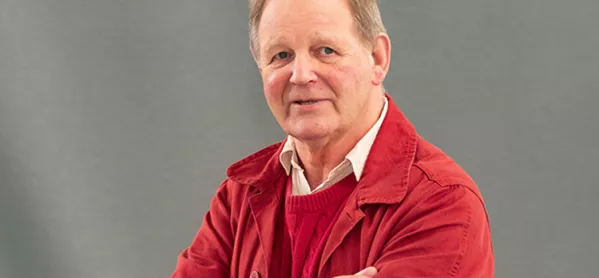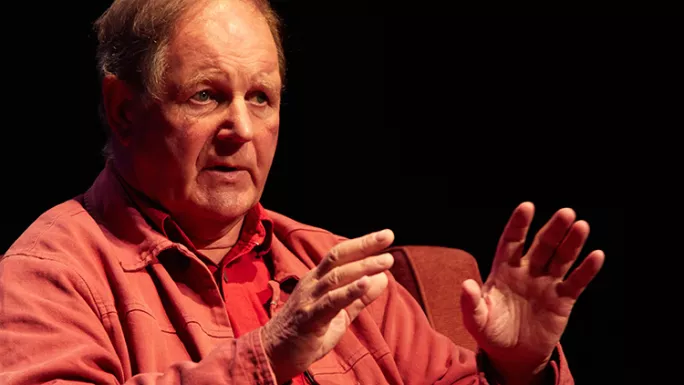Edred Wright was one of those genius teachers. He was the head of music at The King’s School, an independent school in Canterbury, which I went to between the ages of 13 to 18. He was solely responsible for creating the most amazing musical ambiance there.
I was a member of the choir and the choral society, although I never got into either of the two orchestras. I played the violin really very badly. I was taught by another external teacher and eventually got my Grade 1 after six years of trying. I only managed a pass, which indicates the level of my performance. I then ran out of patience and gave up.
But although my talent was minimal as a violinist, I had a decent treble singing voice and I loved singing in the choir every Sunday at Canterbury Cathedral and other great venues.
Edred’s genius as a teacher was that he wasn’t just brilliant with the brilliant ones. He certainly helped mould many great choral scholars, conductors and King’s singers, but his real genius was that he could spread that expertise among people like me. Everyone could join in - it was very much a team thing.
‘Passion, pure and simple’
Canon Shirley, our headmaster, got cross if we didn’t sing properly in chapel, so every Saturday morning, 600 to 700 pupils would congregate for practice. Despite many of those being droners, Edred managed to get the most amazing sound out of us. Through zest and fire and sometimes anger, it somehow worked. It made me realise that everyone can be musical if you really try.
He was a small man, no more than five-foot three or four and he wasn’t at all elegant. I remember him wearing rather ill-fitting suits. But as well as having all the technical know-how, it was his passion, pure and simple, that proved to us that we were capable of doing this.
He convinced us that he loved it; there was never any pretence. No matter whether it was a hymn or an anthem, there was no doubt that he meant it, that this was the real thing. If we weren’t trying our hardest, there was the feeling that we’d let him down. I imagine that was why the standard was so high, and why we all rose to the challenge.
I got my love of classical music from Edred and, to a lesser extent, from my parents. Every Sunday I’d creep into the hall unseen to listen to the first orchestra practice and write letters home. The music touched me, long before literature ever did.
When I left, I had music in my head and my heart, especially Mozart. I now do about three to four concerts a year with an a capella trio called Coope, Boyes and Simpson. They sing about the First World War and I read from my book Private Peaceful in between. For years I didn’t sing, but 18 months ago they asked me to join in with their last song.
It felt incredible to be part of this beautiful communal sound again. All vanity vanishes. Standing there and joining in was just incredible. It took me right back to being there with Edred. I wouldn’t have had the ability to lose myself in the sound if it wasn’t for him.
Tens of thousands of boys must have been through their education with Edred. He was at King’s for 30-odd years. He went on and on waving his baton. Eventually he had a music school named after him.
I used to go and see him and his wife in Canterbury. I think we were fond of one another. He liked triers and he knew I was enthusiastic, if untalented. I never missed a single choir practice.
He died a couple of years ago, aged 92. There’s no doubt that he was one of the greats.
This was originally published in Tes magazine in 2009. Michael was speaking to Hannah Frankel
CV: Michael Morpurgo
Born: 1943, St Albans
Education: The King’s School, Canterbury
Career: Sir Michael Morpurgo is an English book author, poet and playwright who is best known for children’s books such as War Horse, Kensuke’s Kingdom and The Butterfly Lion.





